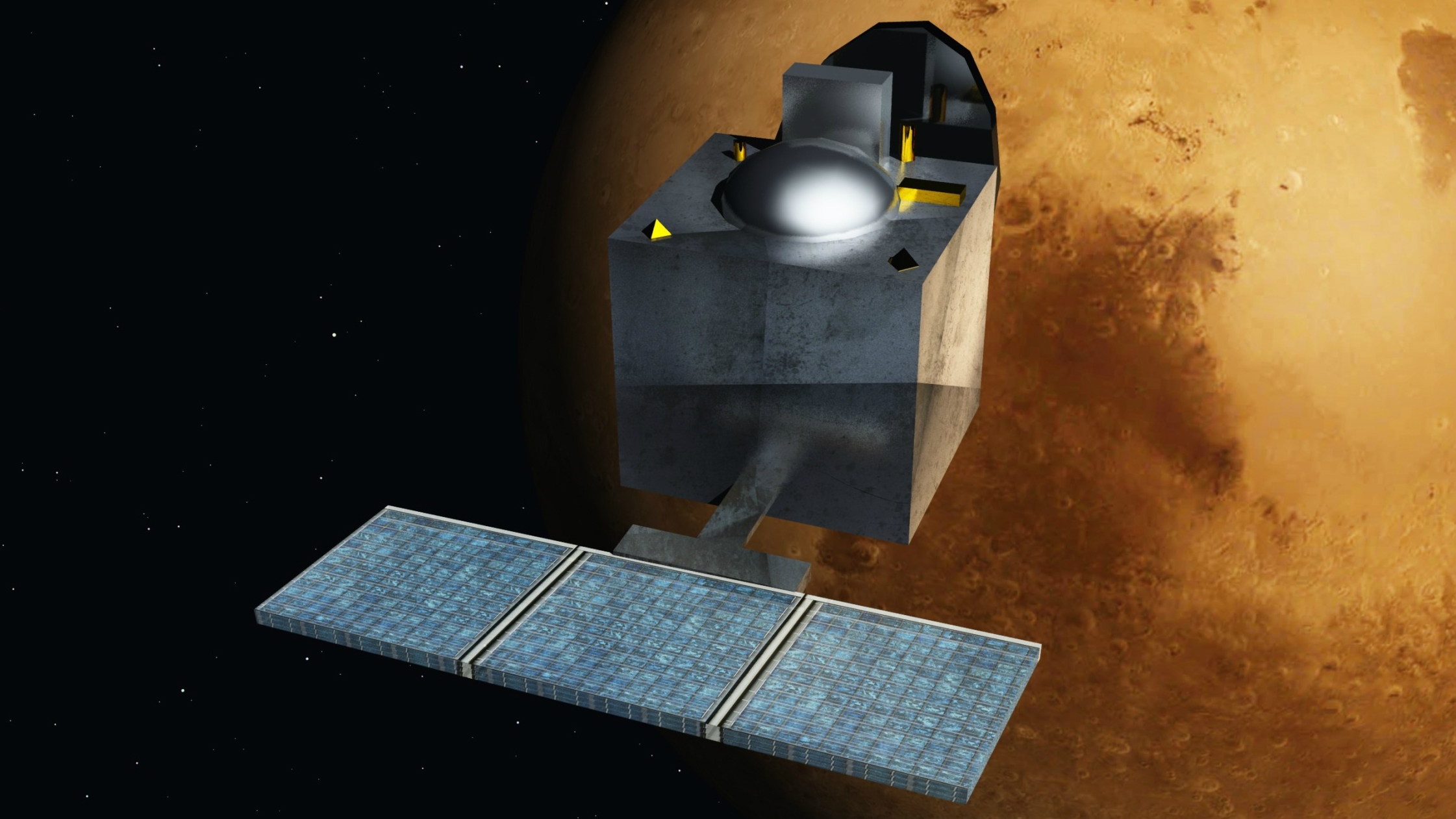Why Narendra Modi wants Indians in space by 2022
India’s PM pledges to make his country the fourth in the world to send manned mission into orbit

A free daily email with the biggest news stories of the day – and the best features from TheWeek.com
You are now subscribed
Your newsletter sign-up was successful
Indian Prime Minister Narendra Modi has announced that the country will launch its first manned space mission by 2022.
Speaking to supporters in New Delhi during Independence Day celebrations, Modi said: “India has always advanced in space science but we have decided that by 2022, when India completes 75 years of independence, or even before that, a son or daughter of India will go to space with a national flag in their hands.”
“A successful manned flight would make India only the fourth country to send a human into space, after Russia, the United States and China,” reports German newspaper Deutsche Welle.
The Week
Escape your echo chamber. Get the facts behind the news, plus analysis from multiple perspectives.

Sign up for The Week's Free Newsletters
From our morning news briefing to a weekly Good News Newsletter, get the best of The Week delivered directly to your inbox.
From our morning news briefing to a weekly Good News Newsletter, get the best of The Week delivered directly to your inbox.
Although India has had a space programme since the 1960s, the nation’s ambition to explore space has only taken off over the past decade.
In 2014, the Indian Space Research Organisation (ISRO) put a probe in orbit around Mars, becoming only the fourth country to do so, and the only country to manage the feat on its first try, says Slate. The following year, the agency launched 104 satellites in just one month, smashing the previous record of 37, held by the Russians.
However, the BBC notes that Modi, who took office in 2014, has faced growing criticism in India “for spending money on space projects when nearly a quarter of its population live below its official poverty limit”.
So why is an expansion of India’s extraterrestrial influence so important to the nation’s leaders?
A free daily email with the biggest news stories of the day – and the best features from TheWeek.com
Some say the answer is simply the elite status that a successful space programme affords.
“Achievements in outer space are a marker of great power status,” says India’s Financial Express. “The Cold War space race... showed both the ‘constructive’ as well as ‘destructive’ potential of outer space.”
“India wishes to be a part of this elite club; it desires to be seen by others not as an ‘emerging power’ but a ‘rising power’,” the newspaper adds.
Offering an alternative theory, BBC Tamil’s Sivaramakrishnan Parameswaran suggests that Modi’s government - and successive prior governments - have pushed for a space programme expansion for more altruistic reasons, on the grounds that “spending on science and technology leads to all-round social development”.
India is looking to “use research from space and elsewhere to solve problems at home”, adds ABC News. The nation’s $1bn-a-year space programme “has already helped develop satellite, communication and remote-sensing technologies and has been used to gauge underground water levels and predict weather in the country prone to cycles of drought and flood”, the US news site reports.
The Guardian suggests that this line of reasoning dates back as far as the administration of Jawaharlal Nehru, the country’s first post-independence prime minister, who “saw an affinity between scientific advancement and the secular, rational worldview he hoped would take root in the new country”.
-
 Antonia Romeo and Whitehall’s women problem
Antonia Romeo and Whitehall’s women problemThe Explainer Before her appointment as cabinet secretary, commentators said hostile briefings and vetting concerns were evidence of ‘sexist, misogynistic culture’ in No. 10
-
 Local elections 2026: where are they and who is expected to win?
Local elections 2026: where are they and who is expected to win?The Explainer Labour is braced for heavy losses and U-turn on postponing some council elections hasn’t helped the party’s prospects
-
 6 of the world’s most accessible destinations
6 of the world’s most accessible destinationsThe Week Recommends Experience all of Berlin, Singapore and Sydney
-
 Epstein files topple law CEO, roil UK government
Epstein files topple law CEO, roil UK governmentSpeed Read Peter Mandelson, Britain’s former ambassador to the US, is caught up in the scandal
-
 Iran and US prepare to meet after skirmishes
Iran and US prepare to meet after skirmishesSpeed Read The incident comes amid heightened tensions in the Middle East
-
 EU and India clinch trade pact amid US tariff war
EU and India clinch trade pact amid US tariff warSpeed Read The agreement will slash tariffs on most goods over the next decade
-
 Israel retrieves final hostage’s body from Gaza
Israel retrieves final hostage’s body from GazaSpeed Read The 24-year-old police officer was killed during the initial Hamas attack
-
 China’s Xi targets top general in growing purge
China’s Xi targets top general in growing purgeSpeed Read Zhang Youxia is being investigated over ‘grave violations’ of the law
-
 Panama and Canada are negotiating over a crucial copper mine
Panama and Canada are negotiating over a crucial copper mineIn the Spotlight Panama is set to make a final decision on the mine this summer
-
 Why Greenland’s natural resources are nearly impossible to mine
Why Greenland’s natural resources are nearly impossible to mineThe Explainer The country’s natural landscape makes the task extremely difficult
-
 Iran cuts internet as protests escalate
Iran cuts internet as protests escalateSpeed Reada Government buildings across the country have been set on fire